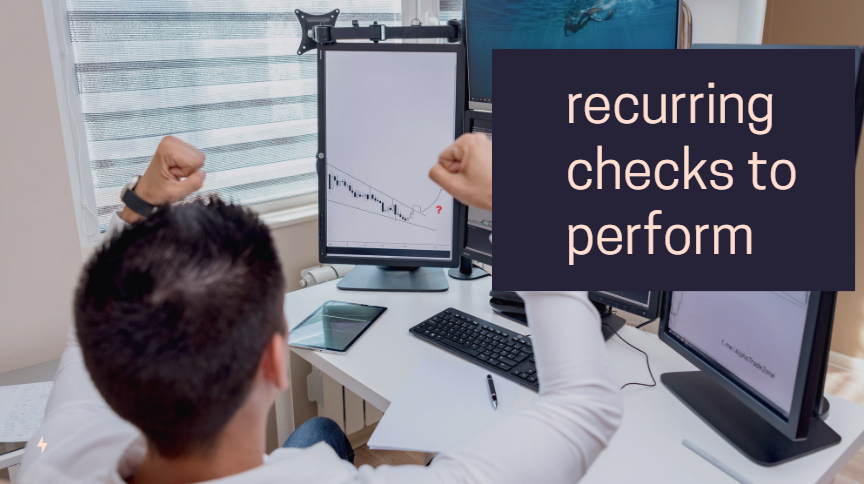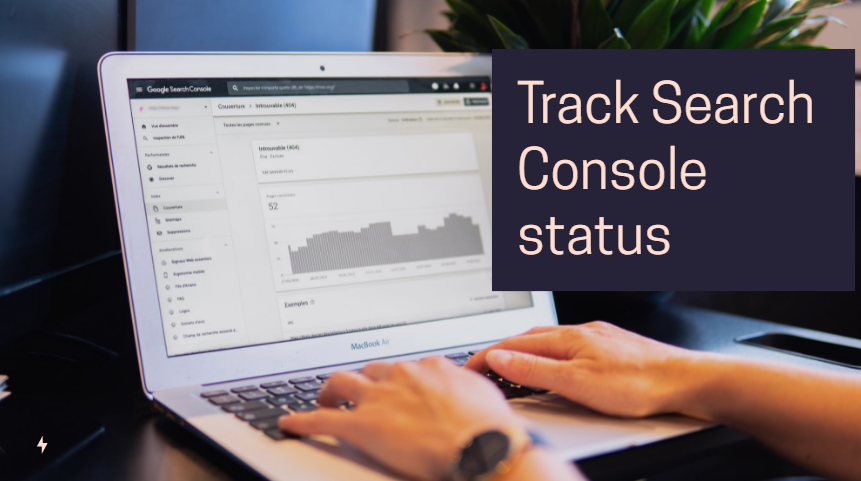8 recurring checks to perform
If you think it only takes a few days to rank well on search engines, we're sorry: that idea is completely wrong. When embarking on a natural referencing strategy, you have to know how to be patient.
Indeed, it takes time for Google (and other search engines) to index and position a page or a site. We're talking about a few weeks or even a few months.
 |
| recurring checks to perform |
Why is the frequency of your SEO audit so important?
If there are areas where things are rather static, SEO certainly isn't. SEO for your site is not something you do once and leave it alone for years to come. And there are several reasons for this:
1. Google's algorithm (and those of other search engines) is constantly changing
Whether more or less important, updates are constantly made on the algorithms of search engines so that they are always more relevant and efficient in their results.
Your SEO strategy will therefore necessarily evolve according to the improvements made to the various algorithms.
Think about it
To keep you informed of what is happening at Google, it is advisable to subscribe to the Google Webmaster site
2. Marketing trends are changing too
We know that for SEO, there is on-page SEO and off-page SEO.
Definition
Off-page SEO refers to things you do outside of your web page to generate traffic, such as your social media posts.
And the pop culture trends that can be found across all of the social media also apply to SEO. Creating fresh and original content helps SEO, but it's far from enough, you have to be able to bring what your visitors want, and for that, you have to be aware of the latest trends.
3. Web development very frequently knows new things
On-page SEO is directly affected by developments in web development.
It is therefore important for companies to adapt their on-page SEO strategy to the latest news in web development. What is considered a best practice today could become obsolete in just a few months.
As you can see, to be on the first page, you have to stay up to date! In addition to following trends, SEO requires continuous work. Here are the checks you need to carry out and their frequencies.
Weekly: Track Search Console status
This is the most recurring check you need to perform.
 |
| Track Search Console status |
Did you know?
The Search Console interface has been redesigned by Google to provide more precise information.
Thanks to this tool, you can follow the performance of your site as well as essential metrics for your SEO:
- Indexing errors: in the “Cover” menu you will see the pages that have not been indexed by Google and will obtain advice on how to remedy this problem.
- The ergonomics of your mobile site: in the "Mobile ergonomics" menu, you can identify any ergonomic problems of your mobile site.
- Manual penalties: If you do not follow Google's best practices, you could face penalties from the latter. You will be informed in the “Manual actions” menu.
- Netlinking: in the "Links" menu you can follow your links and thus improve your backlinks and your internal linkage.
By monitoring these main metrics every week, you will be able to be reactive according to the different problems you face and monitor the improvement of your data.
Every month: analyze traffic from Google Analytics
Google Analytics is full of data, but if there's one you need to monitor regularly it's traffic to your site.
In "Behavior" then "Overview", you can see the evolution of traffic on your entire site.
In "Site content" you can go to "Detail by URL" to refine your control. Try to find correlations between the observed peaks or troughs and your marketing activity.
From "Acquisition"> "All traffic" then "Channels", analyze your traffic sources.
Ideally, the data for Organic Search should increase because it matches the traffic from the natural results. They give a good indication of the state of your SEO.
Every month: monitor the positioning of keywords
This control is obvious since any SEO strategy must be based on keywords. Each month, it is important to check the status of the keywords you are ranking on.
On SEMRush for example, you can:
- Identify the keywords that generate traffic
- Their level of competition
- Your position according to the keywords
- You compare to your competitors
Other free tools (to download) exist to track your position on Google according to keywords such as Free Monitor for Google, SEO Soft, or even SEOscope.
Think about it
Your business evolves and your keywords evolve too. Thus, it is recommended that you review your keyword strategy every quarter.
Every 4 months: check for the presence of technical problems
Certain so-called "technical" problems can have an impact on your SEO, but also on the user experience.
One of the first things to check is for 404 errors. They are synonymous with broken links. Read our guide to learn how to spot and fix them.
Also, remember to check your canonical tags because if they are badly implemented they can be a source of duplicate content.
If you have a WordPress site, make sure your plugins are working properly.
Every 4 months: check the status of the robots.txt file
This check should be carried out if you have a staging site. To secure the latter and prevent anyone from accessing it, you may have modified the robots.txt file to block access to crawlers.
Our advice
Every 4 months, it is good to check that this file from your staging site has not been accidentally copied to your live site.
Every 4 months: check the status of the XML sitemap
Many plugins on CMS allow the automatic update of your XML sitemap by adding the new pages created. However, check that this is the case.
Also, upload your sitemap to Search Console.
Every 4 months: refresh your content
While it's important to bring fresh and original content to your site frequently, it's just as important to refresh and refresh your existing content.
When one of your posts doesn't seem to be getting enough visitors, maybe it's time to refresh it.
To do this, you can:
- Add content if your article is a bit short and add relevant keywords to it,
- Update information that has become obsolete,
- Optimize the article by checking that it respects the basic SEO rules,
- Share it again on your social media.
Every 6 months: check the quality of your internal mesh
As we have seen previously, you can follow the evolution of the number of internal links from the Google Search Console.
But the quality of your internal link is not limited to the number of links:
- Check the anchor texts: we forget the links on “click here”, “c'est par là”, etc. Rather, make links on relevant keywords.
- Check that your most important pages have links to other pages on your site.
Every year: do an SEO audit
 |
| SEO audit |
Once a year, call on an SEO specialist to perform an SEO audit of your site.
This very comprehensive control will cover in particular:
- The structure of your site
- The structure of your URLs
- The meta description and title tags
- Alt tags of your images
- The loading speed of your pages
- Your sitemap and robots.txt file
- Le duplicate content, etc.
Following this audit, you will have a very clear vision of the "state of health" of your site, and you will be able to take the necessary actions to improve and boost your SEO.
Conclusion
As you can see, SEO is work that is carried out over time and requires regularity. You now have the main steps to always stay up to date on your SEO strategy and to carry out the necessary checks.
Need an SEO audit? Find freelance SEO consultants quickly on sgtinfo.link.
Commentaires
Enregistrer un commentaire